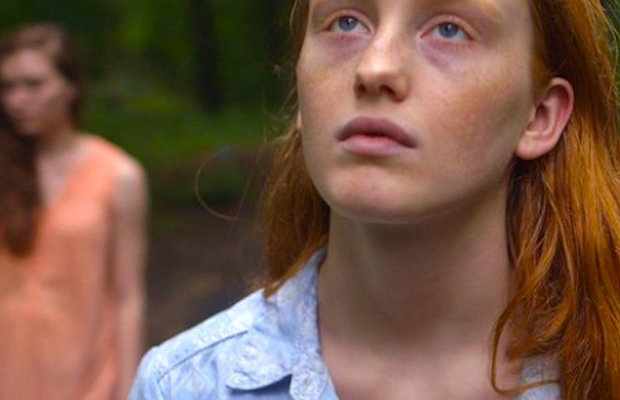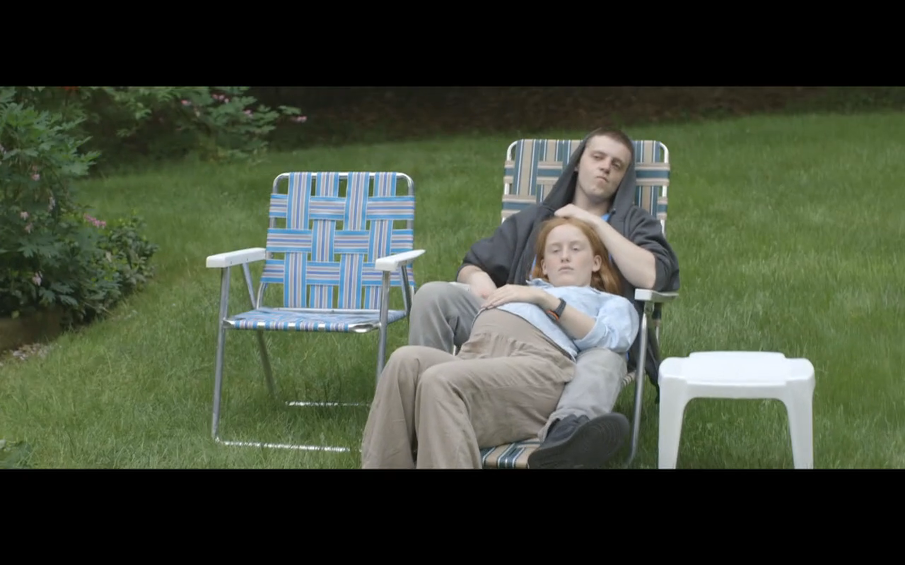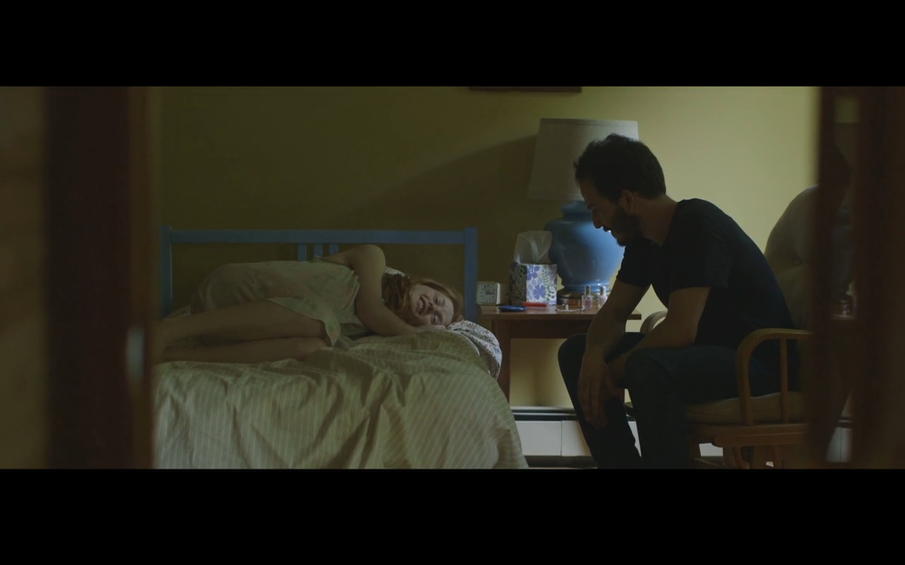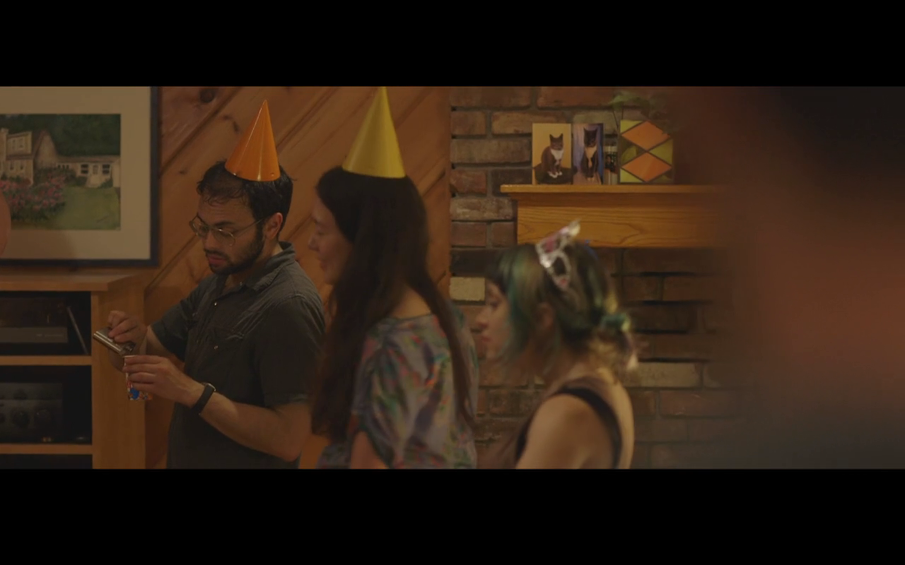 The obsession of glossy celebrity magazines with “baby bumps” and “post baby bodies” (both of which were completely absent in the 80s from People and Us— and made them a lot more interesting to read) doesn’t extend into actresses playing complex protagonists who are visibly pregnant for most if not all of the action. There’s Rosemary’s Baby and Juno and… ? Full-term pregnancy for most women is a big fork in the road, with life changes that extend beyond bikinis and maternity wear, but in films it’s more like a plot device, so we can hear and see how the male protagonist feels about the pregnancy (like in Knocked Up or the recent Locke), as if we don’t already have more than enough films in which men let us know what they think about women’s experiences.
The obsession of glossy celebrity magazines with “baby bumps” and “post baby bodies” (both of which were completely absent in the 80s from People and Us— and made them a lot more interesting to read) doesn’t extend into actresses playing complex protagonists who are visibly pregnant for most if not all of the action. There’s Rosemary’s Baby and Juno and… ? Full-term pregnancy for most women is a big fork in the road, with life changes that extend beyond bikinis and maternity wear, but in films it’s more like a plot device, so we can hear and see how the male protagonist feels about the pregnancy (like in Knocked Up or the recent Locke), as if we don’t already have more than enough films in which men let us know what they think about women’s experiences.
So I was excited to see up-and-coming indie director Nathan Silver’s Uncertain Terms (showing tonight, June 17, as part of the Los Angeles Film Festival) which is set at a group home for pregnant teenagers. India Menuez (so memorable as the American hippie girlfriend in Olivier Assayas’s Something In The Air) plays one of the teenagers, Nina. Menuez has worked as a model, but has the type of beauty that isn’t typically featured in magazines. With the deep copper red of her long, full, wavy hair cascading from her high forehead past her narrow shoulders, her pale skin possessing the glint of gold leaf, her face often in repose, Nina resembles both a Renaissance portrait of the Virgin Mary and the woman in Jan Van Eyck’s Arnolfini painting–complete with pregnancy bump.
But Nina, like the rest of the residents at the home (which includes It Felt Like Love‘s star, Gina Piersanti in a small role), don’t talk like they come from the past, especially in the support group in which they tell the stories of their pregnancies. “I was drunk. There were three guys,” says one. Carla (Cindy Silver, the director’s mother), who manages the house, tells the story of going to a home during her own early pregnancy–which is why she runs the house today. She admonishes the girls to stop fighting, but as they continue with GED studies, one silently writes on a notebook which she shows to the other, “Your (sic) a cunt.” For one girl’s birthday party they dance to “My Neck, My Back” with each other, their late-stage pregnancy bellies becoming just another curve they move in time to the music.
The girls are allowed “visitation” three times a week so we meet Chase (Casey Drogin) Nina’s pierced boyfriend who can never keep a job even though she will be having their baby very soon. “Just don’t fucking worry about it,” he tells her.

Robbie (David Dahlbom) is at the home (the rainy, lush green woods surrounding it seem to be in upstate New York: the excellent cinematography by Cody Stokes reminded me of Jody Lee Lipes framing of a similar setting in Martha May Marcy Marlene) to get away from his troubled marriage, which he at first doesn’t tell his Aunt Carla about as he completes odd jobs she needs done around the site. He sleeps at night on an air mattress in the basement and smokes pot on the house steps where Nina joins him to take a hit or two herself. When he tells her he’s pretty sure she’s not supposed to be doing so, she laughs and says, “I feel like I should be smoking for two.”
I wish the film had continued to show the girls in all their complexity, but instead it devolves into scenes we’re familiar with from other films and TV written by men (the script is by Silver and Stokes as well as Chloe Domont): a girl climbs into a much older man’s bed and he leaves. And even though her leaving his room later might look to everyone else like he had an inappropriate sexual encounter with her, he didn’t. And if he had, that encounter would have been all her fault. I am tired of directors and screenwriters of both independent and big budget entertainment continually showing male characters in what looks like compromising or criminal positions and then make them all a big misunderstanding–like Louie’s recent show about the title character “accidentally” hitting a woman he has sex with.
Nina, who needs someone to talk to in the face of her boyfriend’s burgeoning unreliability and verbal abuse, has long conversations, then flirts, with Robbie–in a manner obvious enough that the other girls notice. This competition between the girls for a much older guy’s attention seems unseemly and unlikely. As we know from their background stories, most of these girls have had devastating experiences with boys fairly recently, and will soon give birth, so hooking up with someone new probably wouldn’t be first priority. Also the girls would make fun of a man like Robbie, who is old enough to have started to lose his hair, the same way they make fun of him when he says, “tie the knot” instead of “get married.”

Robbie has conversations with Nina about her relationship with her boyfriend that could just as easily be about his relationship with his wife (an over-the-top villain who saddles him with debt, cheated on him–of course–and now harasses him to get back together: the buzz of his phone is a constant background noise in all of Robbie’s scenes). Robbie, because he’s so much older, sees that Nina and Chase’s relationship won’t improve–and pretty much tells her so. What the script neglects to do is explore how an older man could use the age discrepancy (and the life experience that goes with it) to manipulate a teenager at a very vulnerable point in her life. Age-related manipulation is a pretty common story: most teen pregnancies are the result of an encounter or relationship with an older man.
Male staff at institutions of every kind (including penal and therapeutic ones) are often caught sexually abusing women patients/residents/prisoners to the point that some facilities choose to no longer employ men in direct care positions. Silver and his co-screenwriters including these cliched, unrealistic scenarios where the girls are “seductive” or as in Orange Is The New Black “in love” with a man who works onsite is more than lazy writing: it, like an endless loop of similar scenes from past movies and TV, provides a ready-made excuse for some real-life asshole to say, “She wanted it, your Honor, I swear.”
Robbie at one point says to Nina, as if he were a teenager himself, “I just want to be with you.” This scene reminds me of the Ryan Gosling character’s offer to marry Michelle Williams in Blue Valentine to help her raise her unborn child. The difference between the characters is Gosling’s, with his ukelele and his dare-devil stunts on the bridge is, unlike Robbie, a dreamy, reckless kid himself and doesn’t foresee how the dreariness of home life and dead-end jobs will kill the love he and Williams’ character have for one another (as the latter part of the film shows).

Robbie is only supposed to be 30, but the actor looks older and the apparent age of the aunt (who had her son–who seems close to Robbie’s age–very young) would also seem to place him in an older bracket, so his pairing with Nina is even creepier. Menuez was born in 1993, but Nina’s soft, open face, mercurial nature and especially her breezy, unwarranted optimism about Chase, make her seem very much a teenager.
In Robbie’s final confrontation with his wife he carries and physically restrains her to keep her from going someplace he doesn’t want her to. Seeing the wife yell at and even slap a pregnant girl afterward shows us Robbie was “right” to try to prevent her from entering. Again, I’m pretty tired of seeing, especially in indie films, “nice guys” with reasonable explanations for doing abusive, criminal things to women (as also happens in the latter part of Blue Valentine). At the end of Uncertain Terms we’re supposed to think that (spoiler alert) if not for his drunk, psycho, violent, cheating wife, 30-year-old Robbie could have had a perfectly loving, balanced and beautiful relationship with a pregnant teenager, something those of us with life experience of our own might be skeptical about.
___________________________________________________
Ren Jender is a queer writer-performer/producer putting a film together. Her writing besides appearing every week on Bitch Flicks has appeared in The Toast, xoJane and the Feminist Wire. You can follow her on Twitter @renjender.